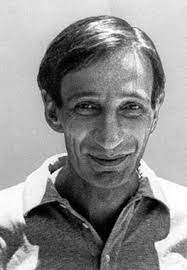Illich, Ivan

Bio: (1926-2002) Austrian-American social theorist. Ivan Illich studied history and theology in Austria in parallel and received his doctorate in history. He became a Catholic priest in New York in 1951. Illich taught at the Catholic University of Puerto Rico, only to leave the priesthood in the late 1960s. He later taught at several universities in the United States, Mexico, and Germany.
Illich was very critical of modern society and its institutions, and he developed this critique in several books. He criticized the way in which institutions and professions dehumanize the world by creating artificial needs, on the one hand, and the exert control over the way these needs are met by those institutions, on the other. Both of these aspects constitute a "radical monopoly" of experts over needs. He believed that technological development negatively affects human relations, the human spirit, and the natural environment.
Illich is best known for his critique of education, and he best expressed his views in the book Deschooling Society (1970). In this book, he explains how the traditional school system has made all students helpless before the capitalist organization of society. Schools are becoming repressive institutions that stifle imagination and creativity and impose conformism. Schools are ineffective in teaching students skills, and they also prevent students from developing their talents and abilities. Students who obey the rules acquire credentials from schools, as proof that they can join the capitalist system and the established order. The school system emphasizes grades, qualifications, and diplomas, which in no way reflect skills, knowledge, and abilities. The final product of education is a person who will be an obedient worker, a large consumer of goods and services sold on the market, and a person who obeys the authority of experts, doctors, and state laws and institutions.
He wanted to implement a critical pedagogy that would aim to transform society. The most important solution that Illich offers is the abolition of the schools themselves in order to achieve the liberation of the people. Instead of schools, he proposes the introduction of "skill exchanges" and "learning webs", where skills would be learned through practice and knowledge acquired through creativity and research.
In the book Medical Nemesis (1975), Illich showed how the medical profession poisons patients with harmful drugs, butchers them during bad operations and makes patients increasingly dependent on doctors. Doctors claim the exclusive right to treat diseases, but they treat individuals and do not change external factors - diet, working conditions (fatigue and stress), quality of housing, and hygiene - which have the greatest impact on the development of the disease. He believes that the medical profession is beginning to affect more and more people's lives. In Shadow Work (1981), Illich studies how the structure of needs influences the creation of a consumer society, and the term "shadow work" refers to unpaid slavery through which people submit to meet these artificially created needs. Examples of shadow work are: learning, homework, traveling to work, buying goods, as well as all the other activities that people do to meet their needs. Illich believed that the standardization of language served to build professional and institutional knowledge, to the detriment of experiential learning within everyday communication.
Illich believed that the solutions for the excessive and negative impact that technology, experts, and institutions exert, on our lives, is in building a value system based on non-market reciprocity, production for own needs, limiting one’s own needs, as well as autonomous use of technology. All of that would lead to the building of a free society.
Fields of research
Authority Capitalism Consumerism Control, Social Ecology Education Freedom Health History Housing Institution and Organization Knowledge Language Market Pedagogy Professions Technology Tradition Unemployment Work Working ClassTheoretical approaches
Cultural Studies (Critical Pedagogy)Main works
Deschooling Society (1970);
Celebration of Awareness (1971);
Tools for Conviviality (1973);
Medical Nemesis: The Expropriation of Health (1975);
Towards a History of Needs (1977);
The Right to Useful Unemployment (1978);
Shadow Work (1981);
Gender (1982);
Vom Recht auf Gemeinheit (1982).

